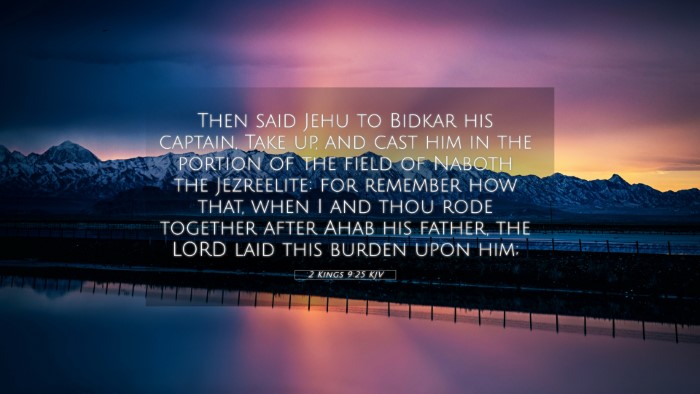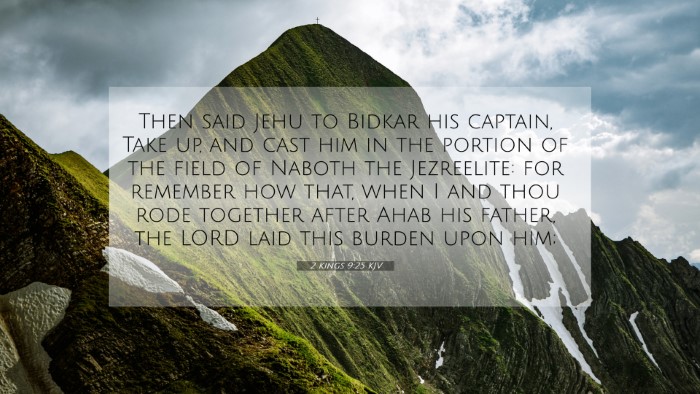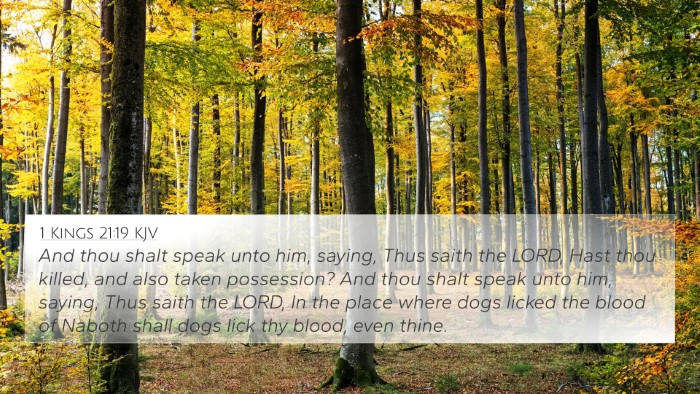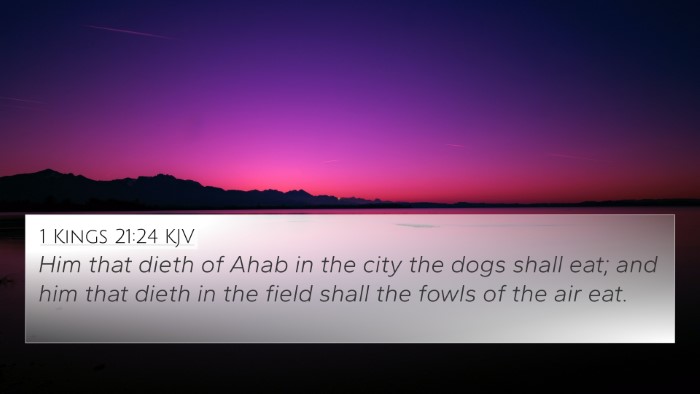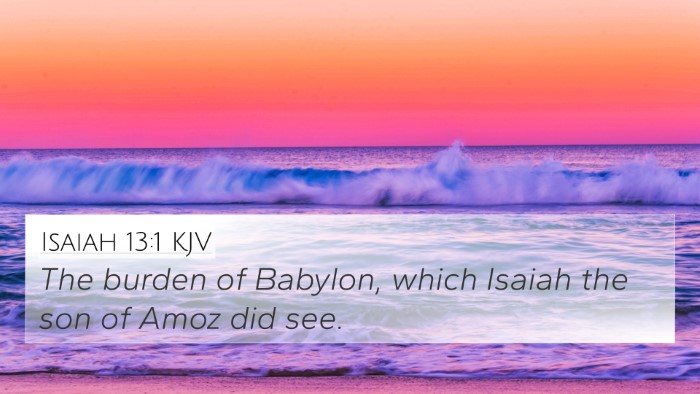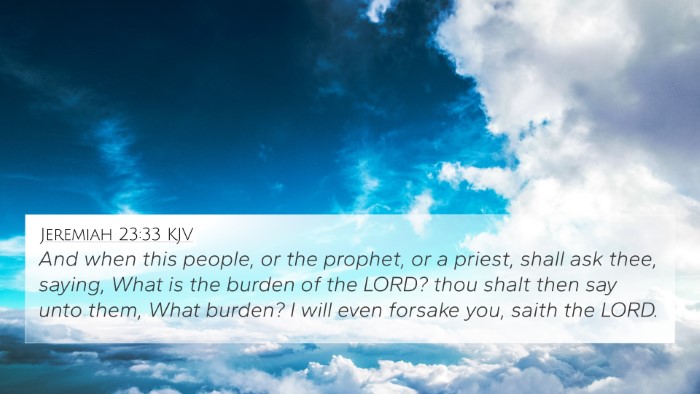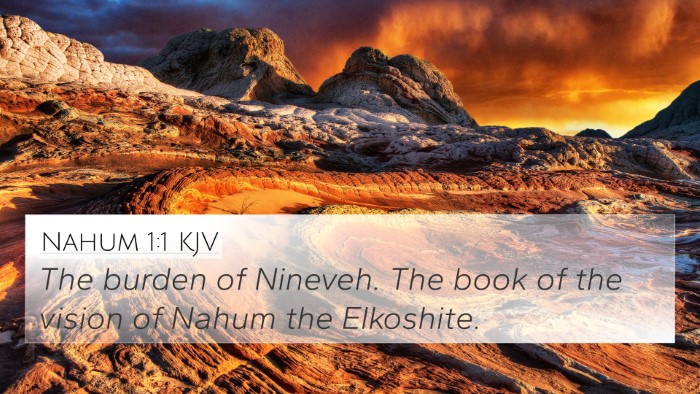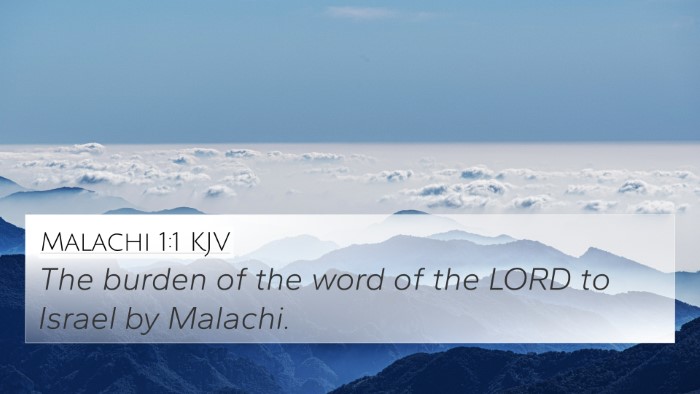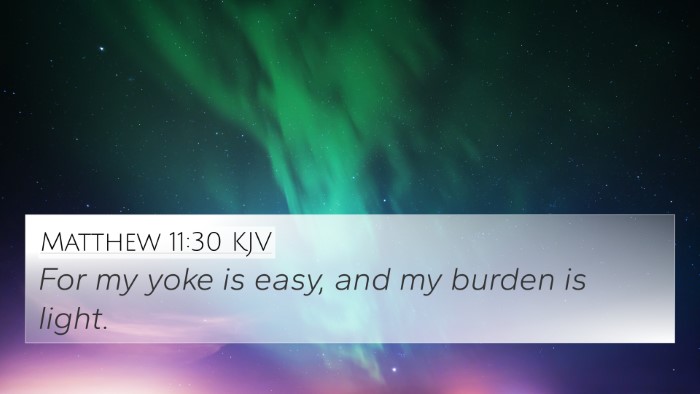Understanding 2 Kings 9:25
Bible Verse: 2 Kings 9:25 - "Then Jehu said to Bidkar his captain, 'Pick him up and throw him into the plot of ground belonging to Naboth the Jezreelite; for remember when you and I were riding together after Ahab his father, that the LORD laid this burden upon him.'"
Overview of 2 Kings 9:25
This verse highlights the directive given by Jehu, emphasizing God's judgment against the house of Ahab. It invokes the past where the prophetic condemnation of Ahab's lineage is reiterated, linking the act of throwing down Jezebel's body to the prophesied recompense of bloodshed.
Commentary Insights
- Matthew Henry:
Henry reflects on the finality of Jehu's actions as the fulfillment of prophecy regarding Ahab's legacy. The reference to Naboth's plot underscores the sacredness of the land and the judgment against those who committed injustice. Jehu's insistence on this act indicates a passion for divine justice and the reputation of God's word.
- Albert Barnes:
Barnes focuses on the significance of Jehu’s command and the historical context, emphasizing the prophetic burden he recalls. It suggests a link between past transgressions and present consequences, illustrating the continuity of God’s judgment through history.
- Adam Clarke:
Clarke explains the land of Naboth as symbolic of injustice and a pivotal point in the morals of Israel. The action taken by Jehu represents a stark contrast to Ahab's corruption, showcasing the Divine retribution that serves as a reminder of God’s sovereignty.
Key Themes
- Divine Judgment: This verse represents the active role of God in administering justice, fulfilling prophecies that were foretold.
- Historical Context: Jehu's actions are grounded in the history of Israel's apostasy and the consequences that stem from it.
- Prophetic Fulfillment: The recall of past events emphasizes the importance of prophecy in the narrative of Israel’s monarchy.
Bible Cross-References
- 1 Kings 21:19: This reference discusses the judgment against Ahab for Naboth's murder, providing context for Jehu's actions.
- 2 Kings 9:10: This verse outlines God's declaration of doom upon Jezebel, linking her fate directly to Jehu's mission.
- 1 Kings 21:23: Prophecy concerning Jezebel's end emphasizes God's control over the events unfolding, serving as a forewarning.
- 2 Kings 9:36-37: These verses further confirm Jezebel's demise, reinforcing the prophetic word over her life.
- Micah 6:16: This verse speaks to the transgressions of Ahab’s house, highlighting the broader implications of disobedience to God's will.
- 2 Kings 10:10: The completion of God's judgment against Ahab's house, affirming the continuity of prophetic fulfillment.
- Isaiah 34:5-6: Echoes of divine judgment relate to the fate of nations that stray from God's commandments.
Importance of Cross-Referencing
Understanding this verse not only entails looking at its immediate context but also at its connections to other scriptures. Tools for Bible cross-referencing, like a Bible concordance or Bible cross-reference guide, can help explore these connections efficiently and facilitate a deeper understanding of the themes presented.
Methods for Cross-Referencing
- Utilize Bible reference resources to locate parallel verses.
- Engage in a cross-reference Bible study to explore thematic links.
- Employ comprehensive Bible cross-reference materials for an in-depth study.
Connecting with Broader Themes
2 Kings 9:25 connects significantly to themes of justice, prophecy, and the sovereignty of God. It serves as an illustration of the consequences of sin and the importance of adhering to God's commandments, which resonates throughout both the Old and New Testament narratives. The connections between Bible verses deepen our understanding of these themes and encourage comprehensive study practices.
Conclusion
In summary, 2 Kings 9:25 encapsulates the essence of God’s judgment upon Ahab’s household while also reminding readers of the importance of prophetic declarations. The insights from public domain commentaries enhance the study of this verse, providing rich interpretations that connect it with other scriptures, ultimately leading to a deeper theological understanding.

